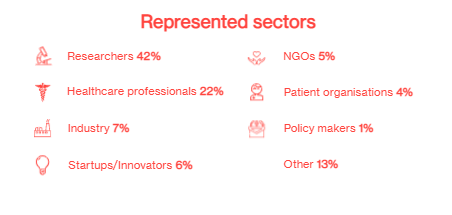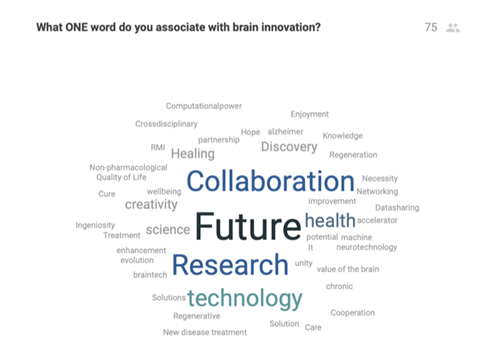The EBRA project was created in 2018 to bring together members that share the common goal of enhancing coordination and collaboration among brain related projects and initiatives, to address gaps and enable the translation of breakthroughs.
There was, and still is, a consensus on the need for the promotion of an inclusive approach to brain research, enhancing productive collaboration among European and international brain initiatives and proposing the generation of a shared strategic brain research agenda. The European Union has demonstrated this need and its commitment by investing EUR 5.3 billion over the previous 10 years. At the same time, many large research initiatives – such as the Human Brain Project (HBP), the Joint Programming on Neurodegenerative Diseases (JPND), the ERA-Net NEURON and the Innovative Medicines Initiative (IMI) – have been established in parallel.
In the meantime, although the numerous resulting research projects have generated considerable amounts of knowledge and innovative approaches, the need to leverage research initiatives and promoting dialogue has grown. The current COVID-19 pandemic has revealed the challenges of a system that is not yet fully integrated, where collaboration between researchers is made difficult by barriers and data sharing is not always fast and effective.
Perhaps for these reasons too, more and more scientists and researchers have taken a stand on the importance of improving access to and optimising the use of research infrastructures and data sources by the neuroscience research communities, thus ensuring better exploitation of the large investments made in brain research.
Evidence of this growing need was showcased during the recent digital launch of the Brain Innovation Days, organised by EBRA Coordinator, the European Brain Council and the Walloon health biotech accelerator, BeLean.net, on 13 October 2020. The audience of nearly 300 people, was put to the test and asked to input the first word they associated with the concept of innovation. The final word cloud proved the importance of collaboration in the minds of those in the brain space; it was one of the most popular, alongside much broader words like the future, research and technology.

Audience composition at the Brain Innovation Days Launch on 13 October 2020
For the EBRA project, this reveals two very important points. The first is that there is now a certain level of awareness among researchers (and the broader brain area community) on the need to support the sharing of common approaches, best practice and critical resources in order to make innovation processes in healthcare and brain research more effective and sustainable. The second is that, although great efforts have been made in recent years, we still need to work together to seek collaboration, at European level, at EU member state level and at global level, to develop joint programmes and develop incentive mechanisms to foster an open, collaborative and inclusive research effort.

